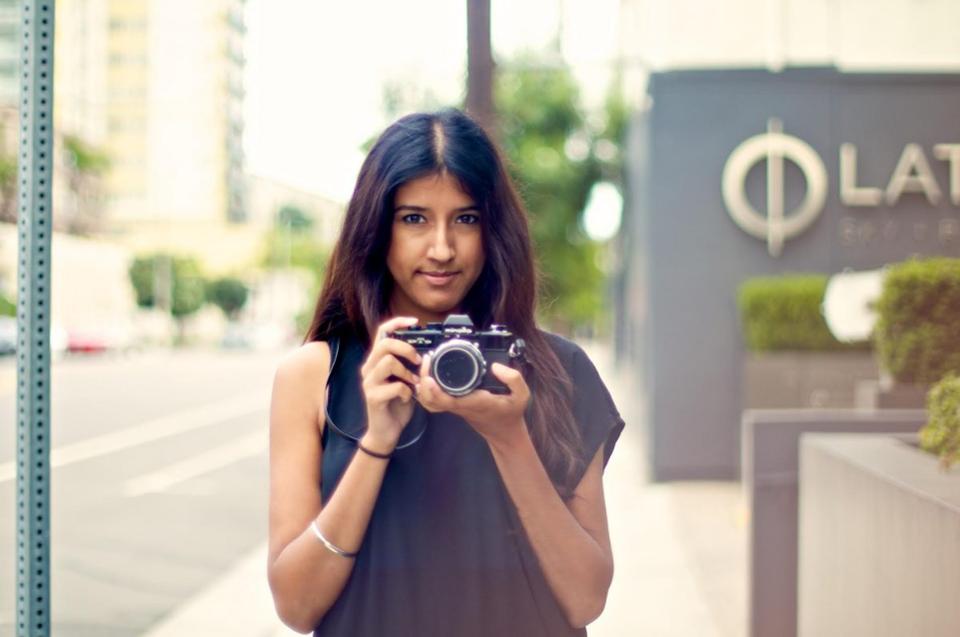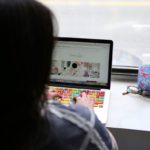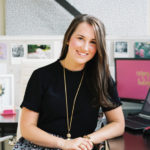You’re lucky if you can turn your passion into a thriving career. Jasmeet Sidhu, a creative producer at MasterClass, a startup that creates online courses with experts in their respective fields, did just that.
Sidhu has always been passionate about storytelling. She has spent nearly a decade working in journalism, photography and video production where she photographed and worked on music videos for celebrities including Taylor Swift, Jay Z, Sia and Selena Gomez. She also worked on news and public content products at Facebook, and was a reporter for the Toronto Star and traveled the world to cover the AIDS crisis in Africa and the United Nations’ climate change negotiations in Europe. Sidhu now uses her multimedia journalism skills as a senior creative producer at MasterClass where she is responsible for helping the team create engaging and educational courses from thought leaders including Dr. Jane Goodall, Martin Scorsese, Shonda Rhimes and Diane von Furstenberg.

How did you end up at MasterClass? What was your career path?
I was working in the New York City offices at Facebook when I was introduced to MasterClass through a friend who was assisting the company with recruiting for producer positions. MasterClass is a San Francisco-based startup that creates online courses taught by the greatest masters in the world such as Serena Williams, Christina Aguilera, Kevin Spacey and Dustin Hoffman. Prior to Facebook, I had a background in music video production and concert photography, and this opportunity seemed like an excellent way to combine my writing, design, visual and film backgrounds and experiences into a single position.
In terms of my career path, I graduated with a degree in peace and conflict studies from the University of Toronto and went on to work as a reporter at the Toronto Star covering city crimes and festivals and writing features. I later moved to New York City for the first time to pursue a masters degree in investigative journalism and digital media at Columbia Journalism School.
Near the end of my degree, my interest shifted toward entertainment media, particularly music videos. I found them to be so visually exciting and it was a medium that was going through incredible changes and innovations with the rise of YouTube and streaming video. Music videos are the most watched type of content on YouTube. I wrote a letter to a music video director that I long admired, Anthony Mandler, who had directed music videos for Jay Z, Beyoncé Knowles, Rihanna and more. He agreed to meet up with me and within a week I bought a one-way ticket to Los Angeles to pursue my dream of making music videos.
I met [Mandler] for the first time on the set of his music videos for Taylor Swift’s “I Knew You Were Trouble,” which was an incredible experience. I later was able to secure an internship with his production company, Black Hand Cinema, which led to a full-time position. I didn’t have contacts in Los Angeles or previous entertainment industry experience, so I knew I had to hustle hard to build a career. I talked to every crew member I could whenever we were on set, I watched and listened to [Mandler] as he directed the shoots, read his video treatments, studied call sheets and shoot schedules, took notes during phone calls with clients and I made myself available to do anything and everything for the producers and production managers, including making coffee.
I knew opportunities are precious, and I made the most of the experience. That experience led me to work on the sets for videos for Jay Z, Taylor Swift, Demi Lovato, Selena Gomez and more. Soon after, I was able to freelance as a production coordinator for music videos and commercials, write music video treatments and work as a music photographer. My first gig was photographing the band “Cage the Elephant” on the set of their “Cigarette Daydreams” music video. That opportunity led to many more, including photographing the band in concert on their Canadian and United Kingdom tour dates, as well as photographing Taylor Swift in concert during her 1989 World Tour. After some time off, I took a Facebook news position and returned to New York City. Now, I am very happy to be back to video content with MasterClass and discover and live in San Francisco.
What is a workday like? Please walk me through a day!
On any given day, I could be working with our MasterClass team on a new class at a different stage of production such as researching the curriculum for an upcoming instructor’s class, assisting the production team to come up with ideas for locations and the visual look for an upcoming shoot or working on-set with our team and the instructor to ensure we are getting the content we need to produce a high-quality educational class or I could be in an editing bay with an editor going through the footage to create the course.
What are your responsibilities as a senior creative producer at MasterClass?
I’m responsible for guiding the creation of an engaging online course. This means everything from curriculum research on the topics that should be discussed in each class to how to effectively teach those topics in an online video, writing questions and ensuring we are capturing the genius of the instructor to working with the MasterClass team to edit and launch the course.
How did you land your role?
As soon as I logged onto the company’s website, I knew this was a company I wanted to be a part of. I was incredibly impressed by the high-production value of the videos, excited by the idea of joining a startup in the early growth stage and the opportunity to work with such talented teachers. The idea that someone at home can take an online writing course with Aaron Sorkin, creator of “The West Wing” and Oscar-winning writer of “The Social Network,” is incredible.
I was introduced to the company and the cofounders through a friend who was assisting them with recruiting. I was actually in Paris at the time and did my initial interview over the phone then completed and presented a test project over Google Hangout. I later flew out from London to interview with the team and see the offices in San Francisco. I was given the offer within hours of my interview and signed all the paperwork to work at the company within a week.
What are the most important characteristics someone needs to have to be successful in your role?
It’s important to have a grand vision for the particular instructor and class that you are working on, while still being able to coordinate, manage and execute on little details.
What are the most important skills for doing your job and how did you develop them?
Writing and researching the curriculum is a huge part of it. But so is crafting a story and narrative for the class so it creates the best educational impact for the students at home. I learned my storytelling skills through the long-form journalism writing and documentary work I used to do and gained my visual instincts, production and project management skills from my work in music videos.
What’s the biggest lesson you learned at work and how did you learn it?
It is incredibly important to maintain your sense of self in any work environment.
What is the best advice you’ve ever received?
Manners matter and people remember. I am a vigilant thank you note writer. Always follow up with a thank you.
What is your career advice for other young professional women?
Be bold in your pursuits and don’t rely on others to give you opportunities. Create them for yourself. I’m a visible minority. I’m a woman. My parents were working-class immigrants. I understood very early on that opportunities wouldn’t naturally present themselves to me no matter how nice of a person I was or how much I felt like I wanted them or deserved them. I’ve had to work hard to create opportunities for myself by being bold, writing letters, attending events, following up, explicitly asking for opportunities, pitching ideas and pitching myself.































